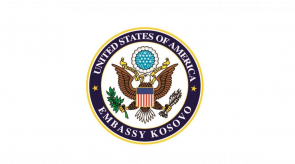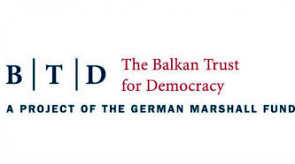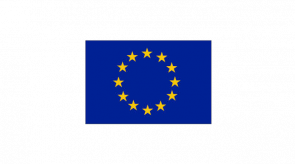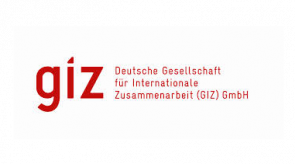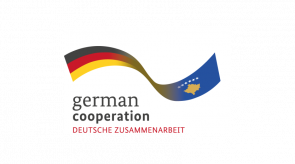Reply on MED reaction concerning a publication “Energy projects in Kosovo”
30/09/2011
Kosovar Institute for Policy Research and Development (KIPRED), Institute for Advanced Studies (GAP), Forum for Civic Initiatives (FIQ).
Reply on MED reaction concerning the publication “Energy projects in Kosovo”
KIPRED, GAP and FIQ, through media outlets received a public statement of the Ministry for Economic Development (MED) on the publication “ Energy projects in Kosovo”, published last week by these three NGOs.
This statement on its introductory part referred to the study published by KIPRED, GAP and FIQ, qualifying it as non-credible, unprofessional and not based on facts. This ascertainment is done by many experts, who, according to the MED “assessed” the report. However, except these introductory sentences, the entire reaction is nothing else but a propagation of MED activities and in none of the sentences are presented counter-arguments regarding the findings of our study. It does not even refer to the study, except in its introductory part.
You may find MED reaction also on the official website at: http://mem.rks-gov.net/?page=1,42,377
In order to inform public opinion correctly, as well as to rebut MED propaganda full of anger, we are once again referring to some of the findings in the study, which MED has failed to rebut:
Energy strategy: On the list of activities emerging from implementation of the Energy Strategy, MED has in fact included two single activities, that of inclusion of private capital in the energy market of the country by means of selling shares of the “Kosova B” power plant and construction of the new power plant, as well as the planned decommissioning of the power plant “Kosova A”. While the second project of inclusion of private capital in the distribution and selling of electricity, which without being based on the facts it is concluded that it will results in improvements as regards to electricity supply services in the country, will result in complete avoidance of Government subsidies in this system, resulting in lowering of losses in network and increase of investments into it. Activities listed in this way come to a conclusion, which is stated in our publication that, Kosovo Strategy on Energy is a strategy based on lignite, and it does not take into account real potentials of Kosovo in the field of energy, limiting, but not liberalising energy market in Kosovo, for many reasons. Some of them are included in our reply, as follows.
Transparency: MED in its letter once again confirms accuracy of our publication concerning lack of transparency in implementation of energy projects in the country. This is done when you see the way how decisions are made and actors involved in this process. There has been no substantive public debate on energy projects in the country in any phases of this process. MED has had continuous tendencies to report in public that there are debates, but indeed it never presented to public opinion the truth about these projects and their true contents.
These truths are hidden in two essential documents, which are kept hermetically closed in drawers of the Government and in those of international advisers. These two documents are the following: Business Model for a new Electricity Distribution and Supply Company (KEDS); and Energy Market Model in the country.
Failure to publish them is nothing but lack of transparency, especially given the fact that as civil society organizations, we requested to have access to these documents several times. Trusting that only a substantial debate would guarantee a good process in development of the energy sector, we strongly request publication of these documents and discussion about the facts they contain. These facts should clarify once and for good how should the energy market look like in the country, what are the responsibilities to be borne by the Government after inclusion of private capital in KEDS, mining and generation, and how these changes would reflect in the tariffs for consumers, a lot many other vital and important issues for wide public opinion. MED is the main stakeholder to keep this public debate closed down. By not providing these essential documents, every debate with this institution will lack in terms of contents and it will only be made in effort to blackmail the public opinion that debate is being conducted with civil society about these processes. Such as thing is not happening, and the MED is completely non-transparent in this direction.
Renewable energy: MED in its reaction continues to confirm facts of our publication when it comes to renewable energy. This confirmation is made when it states that “The Government plans to conduct other studies in the field of renewable energy, to identify potential projects”. Our publication accurately ascertains this information and requests from Government that before it implements energy projects which are not grounded on accurate and complete data, let it make all necessary studies in the field of identification of energy potentials in the country. In addition, our publication found that there has been no comprehensive analysis of real cost of the project of construction of the new power plant, given that real health and environmental costs have not been accounted for at all. Furthermore, MED letter does not point out any achievement deriving from the Energy Strategy of the country, which is related to renewable energy, which once again confirms findings in our publication. Such a thing is not an objective of the Government, and in order to change this negative approach, the entire Strategy related to energy sector in the country should be revised.
Technical and commercial losses: This field is very problematic and it has a negative influence on the entire energy system of the country and also general economic development of the country has not progressed at all from where it has been for several years now. MED is trying to fool the public that there have been improvements in this field by comparing partial figures. Level of general energy loss in the energy network of the country remains at 41 - 43% level. This level has been the same at different periods of times and evolved only when level of electricity generation is taken into account, which have seen increase in the country. Domestic institutions have neglected completely this segment and have not provided proper support of the judicial institutions to overcome the problem of commercial losses. These losses are over 23% of the overall energy generated in the country. This would be sufficient for Kosovo to have enough electricity supply today, however due to institutional negligence and lack of necessary treatment of this field, Kosovans suffer from lack of electricity, and this is being used by institutions themselves to hold forth that privatization will bring desired results in this direction.
Efficiency: MED reaction confirms again accuracy of our publication concluding that “MED has already prepared the National Plan for Energy Efficiency”. This implies that we still don’t have such a plan approved, let alone its implementation. Lack of measures related to saving of electricity, results in high artificial demands for electricity energy in Kosovo. Furthermore, it results in huge spending by consumers and in higher demands for investments in maintenance of electricity energy distribution networks. By not addressing this segment at all so far, the Government has contributed to artificial increase of demands for electricity. Should these measures been in place, then up to 30% of energy would be used to supply consumers who are nowadays deprived from their most elemental right to an uninterrupted supply with electricity. This fact has been addressed in our publication and once again we state that the letter from MED confirms the same thing.
European Union: Inclusion of “Kosova B” power plant in the same tender package with the construction of “Kosova e Re [New Kosovo]” power plant is in absolute contradiction with EU policies on liberalization of energy market in the country. Private monopoly in the field of electricity generation is devastating for a country and it will result to be such for Kosovo as well. MED should address this issue urgently and demand for removal of “Kosova B” power plant from the tender package, in order to protect consumers. All calculations show that necessary investments in “Kosova B”, under current production levels in this power plant, are covered without a need for this to be done by means of subsidising or private capital. Our publication addresses this big strategic mistake in this project, and this is confirmed by actual facts, provided to public also by the former Minister of Energy, Ms. Justina Shiroka-Pula, herself.
Finally, through this press release, KIPRED, GAP and FIQ recommend to MED not to be concerned, but on the contrary, to be encouraged by findings of ours study. Purpose of this study is improved energy policies in the country and protection of Kosovo citizens from half-witted policies, and from mistakes in their implementation.
Krenar Gashi, KIPRED
Agron Demi, GAP
Ferdinand Nikolla, FIQ



